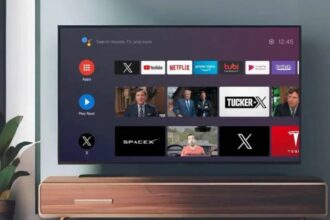Elon Musk, Tesla Inc’s CEO, has ignited a fiery discussion in the realm of remote work, drawing attention to its productivity implications and moral aspects. Musk’s opposition to the work-from-home culture has led to a broader conversation on the ethics and fairness of remote work policies.
Musk’s sentiments are clear: “People should quit moralizing the work-from-home concept,” he says. He suggests that working remotely not only affects productivity negatively but also sends an inappropriate message to essential workers unable to enjoy the same benefits. He takes issue with the moral inequity between the so-called “laptop class” who can work remotely and those who cannot, such as factory and service industry professionals.
Also read: Elon Musk’s Effort To Lift SEC Restrictions On Tweets Thwarted By Court
While some individuals benefit from working remotely, others must physically report to their workplaces, leading Musk to question the fairness of such arrangements. Critics argue that such disparities are a part of broader inequalities in capitalist societies, rather than a moral transgression.
It’s worth noting that the capacity to work remotely is often considered a privilege earned by those possessing the necessary skills. During the pandemic, companies managed to keep running as white-collar workers quickly adapted to remote work. However, the rising number of resignations as companies recall workers to offices suggests a strong preference for continued flexibility.
Research on remote work’s effect on productivity has shown mixed results, with some studies indicating a decline and others showing an increase in productivity and job satisfaction. While Musk’s concerns about productivity may be arguable, his points about fairness introduce significant questions about it’s societal consequences.
Also read: Elon Musk Unveils Mystery Successor as Twitter CEO: A New Era Begins
Companies and policymakers must consider the impact on essential workers unable to work remotely. Striking a balance between white-collar workers’ flexibility and fairness for all employees is a challenging task requiring thoughtful deliberation.
Musk’s stance on the subject is consistent, as demonstrated when he took over Twitter in 2022 and promptly established a policy against it, causing disruption among employees. He believes employees at Twitter, Tesla, and SpaceX should be present in the office daily.
As we navigate the post-pandemic landscape, the remote work debate, with its facets of productivity, fairness, and ethical considerations, becomes even more critical. Balancing employee needs with the realities faced by essential workers requires empathy, fairness, and a nuanced understanding of modern work’s evolving nature.
This article is based on the story originally reported by YourStory.

















